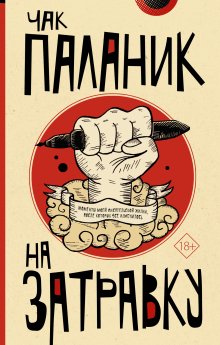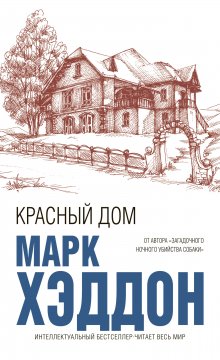Джоанн Харрис - Five Quarters of the Orange / Пять четвертинок апельсина

Все авторские права соблюдены. Напишите нам, если Вы не согласны.
Описание книги "Five Quarters of the Orange / Пять четвертинок апельсина"
Описание и краткое содержание "Five Quarters of the Orange / Пять четвертинок апельсина" читать бесплатно онлайн.
At twelve thirty I heard the sound of motorcycles from the kitchen. A terrible sound, like pneumatic drills in unison, and I dropped the skillet with which I was turning a row of bolets farcis to run out into the road. The sound was unbearable. I clapped my hands over my ears and even then felt sharp pain lancing my eardrums, made sensitive from so many years of diving in the old Loire. Five motorcycles, which I had last seen propped against the sides of the Snack-Wagon, were now parked on the road just opposite, and their owners-three with girls perched delicately behind them-were revving up to leave, each trying to outdo the rest in volume and attitude. I shouted at them, but could hear nothing but the tortured screech of the machines. Some of the young customers at the Snack-Wagon laughed and clapped. I waved my arms furiously, unable to make myself heard against the din, and the riders saluted me mockingly, one rising onto his back wheels like a prancing horse in a redoubled gale of sound.
The whole performance lasted five minutes, by which time my bolets were burnt and my ears ringing painfully, and my temper risen to the melting point. There was no time to complain again to the owner of the Snack-Wagon, though I promised myself that I would as soon as my customers left. By then, however, the wagon had closed, and though I thumped furiously against the shutters, no one answered.
The next day the music was playing again.
I ignored it for as long as I could, then stamped off to complain. There were even more people than before, and a number of them, recognizing me, made insolent comments as I pushed my way through the little crowd. Too angry to be polite today, I glared up at the Snack-Wagon’s owner and spat:
“I thought we had an agreement!”
He gave me a smile as wide and as gleaming as a barn door. Inquiringly:
“Madame?”
But I was in no mood to be cajoled.
“Don’t go trying to pretend you don’t know what I’m talking about. I want the music off, right now!”
Polite as always, and now looking slightly hurt at my ferocious attack, he switched the music off.
“But of course, madame. I didn’t mean to offend you. If we’re to be such close neighbors we should try to accommodate each other.”
For a few seconds I was too angry even to hear the warning bell.
“What do you mean, ”close neighbors‘?“ I managed at last. ”How long do you imagine you’re going to be staying here?“
He shrugged. “Who knows?” His voice was silky. “You know the catering business, madame. Such an unpredictable thing. Crowds one day-the next, half empty. Who knows what may happen?”
The warning bells had grown to a jangle now, and I was beginning to feel cold.
“Your trailer’s on a public road,” I said dryly. “I imagine the police will move you on as soon as they spot you.”
He shook his head.
“I’ve got permission to be here, on the verge,” he told me gently. “All my papers bear scrutiny.” Then he looked at me with that insolent politeness of his. “Do yours, madame, I wonder?”
I kept my face stony, while my heart flipped over like a dying fish. He knew something. The thought spun dizzily in my head. Oh God. He knew something. I ignored his question.
“Another thing.” I was pleased with my voice, with its low, sharp quality. The voice of a woman who is not afraid. Beneath my ribs my heart beat faster. “Yesterday there was a commotion with motorcycles. If you allow your friends to disturb my customers again, then I shall report you for creating a public nuisance. I’m sure the police-”
“I’m sure the police will tell you that the cyclists themselves are responsible, not I.” He sounded amused. “Really, madame, I’m trying to be reasonable, but threats and accusations aren’t going to solve the problem…”
I left feeling strangely culpable, as if I, and not he, had made the threats. That night I slept fitfully, and in the morning snapped at Prune for spilling her milk, and at Ricot for playing soccer too close to the kitchen garden. Pistache looked at me oddly – we had barely spoken since the night of Yannick’s visit – and asked if I felt all right.
“It’s nothing,” I said shortly, and returned to the kitchen in silence.
3
For the next few days the situation gradually worsened. There was no music for two days, then the music began again, louder than ever. Several times the gang of motorcyclists called, each time revving violently as they arrived and left, and doing laps around the block where they raced one another and uttered long ululating cries. The group of regulars at the Snack-Wagon showed no sign of diminishing, and every day I spent longer and longer picking up discarded cans and papers from the sides of the road. Worse still the wagon began to open in the evenings too, from seven until midnight – coincidentally, these were identical to my own hours-and I began to fear the sound of the wagon’s generator as it powered up, knowing that my quiet crêperie would soon be facing an ever-growing street party. A pink neon strip above the wagon’s counter announced, Chez Luc, Sandwiches-Snacks-Frites, and the fairground smells of frying and beer and sweet hot waffles filled the soft night air.
Some of my customers complained. Some simply stayed away. By the end of the week, seven of my regulars had seemingly stopped coming altogether and the place was half empty on weekdays. On Saturday a group of nine came from Angers, but the noise was especially bad that evening, and they looked nervously at the crowd at the roadside where their cars were parked, finally leaving without dessert or coffee and with the conspicuous absence of a tip.
This couldn’t go on.
Les Laveuses has no police station, but there is one gendarme, Louis Ramondin-François’s grandson-though I never had much to do with him, he being from one of the Families. A man in his late thirties, lately divorced following a too-early marriage to a local girl, with the look of his uncle Guilherm, the one with the wooden leg. I didn’t want to talk to him now, but I could feel everything slipping away from me, pulling me apart in every direction, and I needed help.
I explained the situation with the Snack-Wagon. I told him about the noise, the litter, my customers, the motorcycles. He listened with the look of an indulgent young man talking to a fussy grandmother, nodding and smiling so that I longed to knock heads with him. Then he told me-in the cheery, patient tone the young reserve for the deaf and the elderly-that no law was as yet being infringed. Crêpe Framboise was on a main road, he explained. Things had changed since I first moved to the village. He might be able to talk to Luc, but I must try to understand…
Oh, I understood. I saw him later by the Snack-Wagon, out of uniform, chatting with a pretty girl in a white T-shirt and jeans. He had a can of Stella in one hand and a sugared waffle in the other. Luc gave me one of his satirical smiles as I went by with my shopping basket, and I ignored them both. I understood.
In the days that followed, business at Crêpe Framboise slumped even more. The place was only half full now, even on Saturday nights, and weekday lunchtimes were even poorer. Paul stayed, though, loyal Paul with his special every day and his demi, and out of simple gratitude I began to give him a beer on the house, though he never asked for more than the single glass.
Lise told me that Luc-our Snack-Wagon owner-was staying over at the Café de La Mauvaise Réputation, where they still rent a few rooms.
“I don’t know where he’s from,” she told me. “Angers, I think. He’s paid his rent three months in advance, so it looks as if he’s planning to stay.”
Three months. That would take us almost to December. I wondered whether his clientele would be as keen when the first frost came. It was always a low season for me, with only a few regulars to keep things going, and I knew that with things as they were I might not even be able to count on those. Summer was my high time, and in those holiday months I usually managed to set aside enough money to make me comfortable until the spring. But this summer… As things were at present, I told myself coolly, I might make a loss. It was all right; I had money put away, but there was Lise’s wage, plus the money I sent for Reine, feed for the animals, stores, fuel, machine rental… And with autumn coming soon there would be the laborers to pay, the apple pickers and Michel Hourias with his combine, though I could sell the grain and the cider in Angers to tide myself over.
Still, it might be hard. For some time I fretted uselessly over figures and estimates. I forgot to play with my grandchildren, and for the first time wished that Pistache had not come for the summer. She stayed another week, then left with Ricot and Prune, and I could see in her eyes that she felt I was unreasonable, but I could not find enough warmth in me to tell her what I felt. There was a cold hard place where my love for her should have been, a hard dry place like the stone in a fruit.
I held her briefly as we said good-bye, and turned away dry-eyed. Prune gave me a bunch of flowers she had picked in the fields, and for a moment a sudden terror overwhelmed me. I was behaving like my mother, I told myself. Stern and impassive, but secretly filled with fears and insecurities. I wanted to reach out to my daughter, to explain that it wasn’t anything she had done-but somehow I couldn’t. We were always raised to keep things to ourselves. It isn’t a habit that can be easily broken.
4
And so the weeks passed. I spoke to Luc again on several occasions, but met with nothing but his ironic civility. I could not shake the thought that he was familiar somehow, but could not place where I might have seen him before. I tried to find out his surname in the hope that it might give me a clue, but he paid cash at La Mauvaise Réputation and when I went there the café seemed full of the out-of-towners who haunted the Snack-Wagon. There were a few locals too: Mirielle Dupré and the two Lelac boys with Alain Lecoz, but mostly they were out-of-towners, pert-looking girls with their designer jeans and halters, young men in cycle leathers or Lycra shorts. I noticed that young Brassaud had added a jukebox and a pool table to his assortment of shabby slot machines-it seemed that not all trade had been bad in Les Laveuses.
Perhaps that was why support for my campaign was so halfhearted. Crêpe Framboise is at the far side of the village, on the Angers road. The farm was always isolated from the others, and there are no other houses for half a kilometer into the village. Only the church and the post office are within any kind of hearing distance, and you can guess that Luc kept his silence when there was a service. Even Lise, who knew what it was doing to our business, could make excuses for him. I complained to Louis Ramondin twice more, but I might as well have spoken to the cat, for all the use he was to me.
The man really wasn’t hurting anyone, he said firmly. If he broke the law, then perhaps something could be done. Otherwise, I was to let the man get on with running his business. Did I understand?
It was then the other affair began. Little things at first. One night it was fireworks going off somewhere in the street. Then motorcycles revving up outside my door at two in the morning. Litter tipped onto my doorstep during the night. A pane of my glass door broken. One night a motorcyclist rode about in my big field and made figure eights and skid marks and crazy loops all through my ripening wheat. Little things. Nuisances. Nothing you could tie down to him, or even to the out-of-towners he brought in his wake. Then someone opened the door of the henhouse and a fox got in and killed every one of those nice brown Polands of mine. Ten pullets, good layers all of them, all gone in a single night. I told Louis-he was supposed to deal with thieves and trespassers-but he practically accused me of forgetting the door myself.
“Don’t you think perhaps it might have just… swung open in the night?”
He gave me his big friendly countryman’s smile, as if maybe he could smile my poor hens back to life. I gave him a sharp look.
“Locked doors don’t just swing open,” I told him tartly. “And it takes a clever fox to cut open a padlock. Someone mean did that on purpose, Louis Ramondin, and you’re paid to find out who.”
Louis looked shifty and muttered something under his breath.
“What did you say?” I asked sharply. “There’s nothing wrong with my ears, young Louis, and you’d better believe it. Why, I remember when-”
I bit off the end of the sentence in a hurry. I’d been about to say that I remembered his old granddaddy snoring in church, drunk as a lord and with piss down his pants, hidden inside the confessional during the Easter service, but that was nothing la veuve Simon would ever have known about, and I felt cold to think that I might have given myself away with a piece of stupid gossip. You understand now why I didn’t have more to do with the Families than I could help.
Anyway, Louis finally agreed to have a look round the farm, but he didn’t find anything, and I just got on with things as best I could. The loss of the hens was a blow, though. I couldn’t afford to replace them-besides, who was to say it might not happen again? – so I had to buy eggs from the old Hourias farm, now owned by a couple named Pommeau who grew sweet corn and sunflowers, which they sold upriver to the processing plant.
I knew Luc was behind what was happening. I knew it but I couldn’t prove anything, and it was driving me half crazy. Worse, I didn’t know why he was doing it, and my rage grew until it was like a cider press squeezing my old head like an apple about ripe and ready to burst. The night after the fox in the henhouse I took to sitting up at my darkened window with my shotgun slung across my chest, and a strange sight it must have been to anyone who saw me in my nightdress and my autumn coat, keeping watch over my yard. I bought some new padlocks for the gates and the paddock, and I stood guard night after night waiting for someone to come calling, but no one came. The bastard must have known what I was doing, though how he could have guessed I don’t know. I was beginning to think he could see right into my mind.
5
It didn’t take long for sleeplessness to take its toll on me. I began to lose concentration during the daytime. I forgot recipes. I couldn’t remember whether I’d already salted the omelette, and salted it twice or not at all. I cut myself seriously as I was chopping onions, only realizing I’d been asleep on my feet when I awoke with a handful of blood and one of my fingers gaping. I was abrupt with my remaining customers, and even though the loud music and the motorcycles seemed to have quieted down a little, word must have got around, because the regulars I had lost didn’t come back. Oh, I wasn’t entirely alone. I did have a few friends who took my part, but the deep reserve-the constant feeling of suspicion-that had made Mirabelle Dartigen such a stranger in the village must be in my blood too. I refused to be pitied. My anger alienated my friends and frightened my customers away. I existed on rage and adrenaline alone.
Oddly enough, it was Paul who finally put a stop to it. Some weekday lunchtimes he was my only customer, and he was regular as the church clock, staying for exactly an hour, his dog lying obediently under the chair, watching the road in silence as he ate. He might have been deaf, for all the notice he took of the Snack-Wagon, and he rarely said anything to me except hello and good-bye.
Подписывайтесь на наши страницы в социальных сетях.
Будьте в курсе последних книжных новинок, комментируйте, обсуждайте. Мы ждём Вас!
Похожие книги на "Five Quarters of the Orange / Пять четвертинок апельсина"
Книги похожие на "Five Quarters of the Orange / Пять четвертинок апельсина" читать онлайн или скачать бесплатно полные версии.
Мы рекомендуем Вам зарегистрироваться либо войти на сайт под своим именем.
Отзывы о "Джоанн Харрис - Five Quarters of the Orange / Пять четвертинок апельсина"
Отзывы читателей о книге "Five Quarters of the Orange / Пять четвертинок апельсина", комментарии и мнения людей о произведении.





























